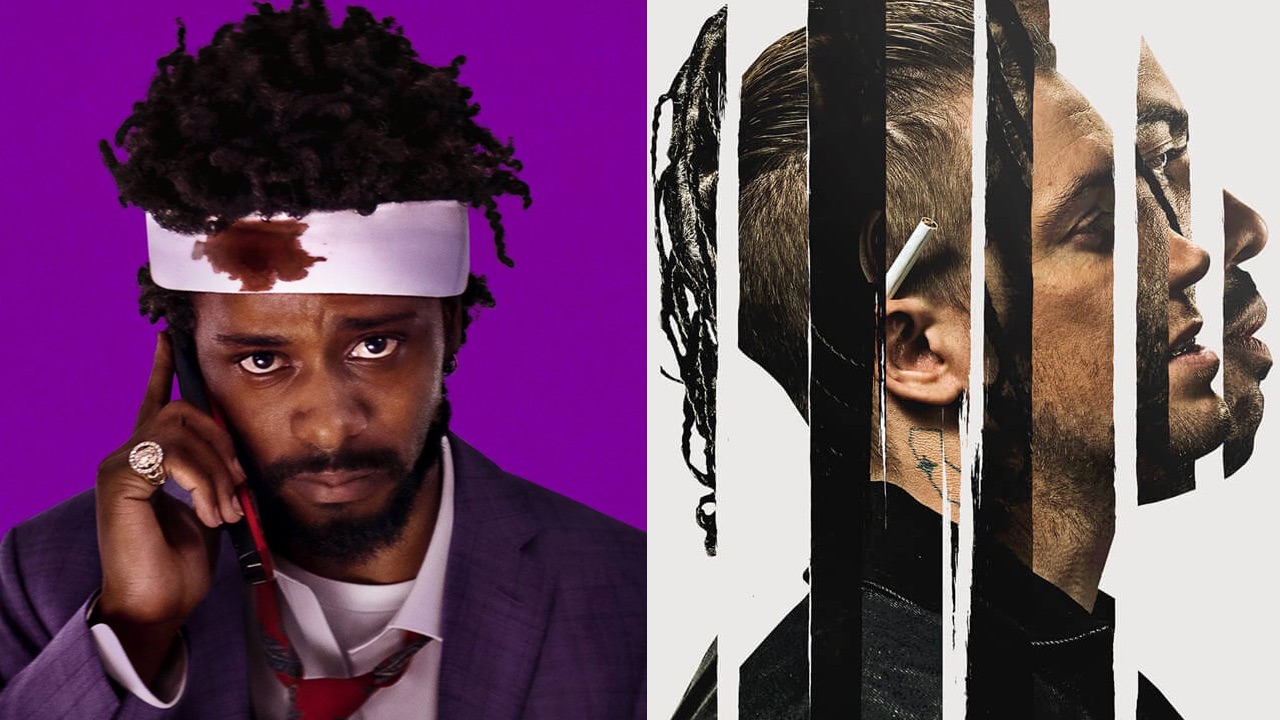
Oakland’s influence on ‘Blindspotting’ and ‘Sorry To Bother You’
Written by: Cesar Perez, CC2K Staff Writer
What a year 2018 has been for the City of Oakland, aka “The Town.” The Golden Gate Warriors went “back-to back” as they repeated as NBA Champions, and Oakland native Ryan Coogler dominated the box-office with his Afro-Futuristic Marvel feature, Black Panther. The often-neglected city located eight miles east of San Francisco and 25 miles from my hometown of Vallejo, has a long-established history for being a hotbed of social activists and innovating artists. It is the place that produced Boots Riley, the writer and director of Sorry To Bother You, along with Daveed Diggs and Rafael Casal, the writers and stars of Blindspotting. While their Oakland brethren Ryan Coogler set box-office records with Black Panther and forever impacted the landscape of diversity in Hollywood, it is Riley, Diggs and Casal that have crafted the most socially relevant and important films of the year.
Blindspotting and Sorry To Bother You are both set in Oakland and were released within a few weeks of each other. Oakland is the home of the Black Panther Party and was one of the epicenters of the counterculture of the 1960s. Both films stay true to the city’s revolutionary past, as they use radical techniques to explore its themes that amplify the film’s powerful messages. The city’s culture and identity are stitched into the fabric of both films. Riley, Diggs, and Casal carve their own unique path to tell their stories. As Oakland does, they stay innovating.
Fair warning, SPOILERS AHEAD.
In a piece for Vanity Fair written by Riley himself, the director talks about the artists who hail from his hometown. “Oakland has always had artists attempting to define the immense beauty and ridiculousness around them.” This insanity is demonstrated in laws banning BBQs and alcohol in the 1990s at Lake Merritt, located in the heart of Oakland and a popular hangout spot for black and brown people. Not to mention it is illegal to drive around the lake more than once. Oakland artists are simply trying to make sense of the craziness surrounding them and Sorry To Bother You is an extension of that.
Boots Riley fills the screen with surreal moments that push the boundaries of reality to challenge the status quo, explore capitalism and social activism. Cassius Green (Lakeith Stanfield) is broke and on the verge of getting evicted. After discovering his “white voice” he is compelled to use it to make more sales at the telemarketing firm Regal View where he works. Cassius eventually gets a promotion, but ditches the union he helped form. While having a few drinks at a bar with friends, Cassius’ “white voice” comes out and although his friends are weirded out by it, it is brushed off and accepted as truth. If this wasn’t enough weird, it gets better. Worry Free, a company offering a lifetime of shelter and meals in exchange for a lifetime of employment, wants to turn its work force into equisapiens, a half-horse, half-human hybrid. Regal View and Worry Free are in cahoots and Cassius is left with a decision to jump ship or stay with the company. However, Cassius loses part of his humanity in the process. He gets tricked by the CEO of Worry Free into becoming a half-horse, half-human hybrid. In Boots Riley’s dystopian Oakland, the stakes are really that high.
Through heightened language in Blindspotting, the themes of race relations, police brutality, gentrification and stereotyping are all examined, inviting the audience to look at these issues through a different lens. Miles (Rafael Casal) and Collin (Daveed Diggs) use freestyle raps, poetry and spoken word to express discontent with their jobs, the gentrifying Oakland neighborhood and the obstacles they face living in an urbanized area.
These storytelling techniques are not often seen in film and they are especially effective in Collin’s case as he attempts to make it through his final three days on probation. Collin witnesses the murder of a black man at the hands of a white police officer and this tragedy affects him to his core. Images of the white police officer and gunned down black males haunt him as he jogs through an Oakland cemetery. In what is the most powerful scene of the year, Collin comes to face to face with that same officer and draws a firearm. Overcome with emotion, Collin spits a rap that is a whirlwind of anger, fear and frustration. Collin’s lyrics address his fear of the Oakland Police Department and the discrimination he faces in a social and political system designed to send him back to jail. The message in Collin’s soliloquy is too important to be left to a more a traditional delivery. The writing of this brilliant scene is designed for the audience to feel every word in their gut. As Miles says earlier in the film, if you want to capture people’s attention, “You have to make it sound pretty.”
Sorry To Bother You and Blindspotting are landmark films and the most original pieces of cinema in the past decade. They are also the most Bay Area-centric films I’ve ever seen in my life and need to be consumed by as many people as possible. 2018 is the year of Oakland filmmakers as we witness, first-hand, the originality of these talented artists. When award season comes along, I hope they are not overlooked.
